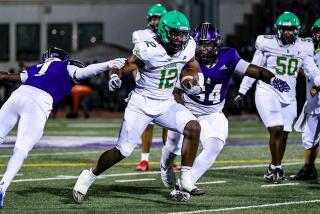City Section football programs on the rise with rebuilds
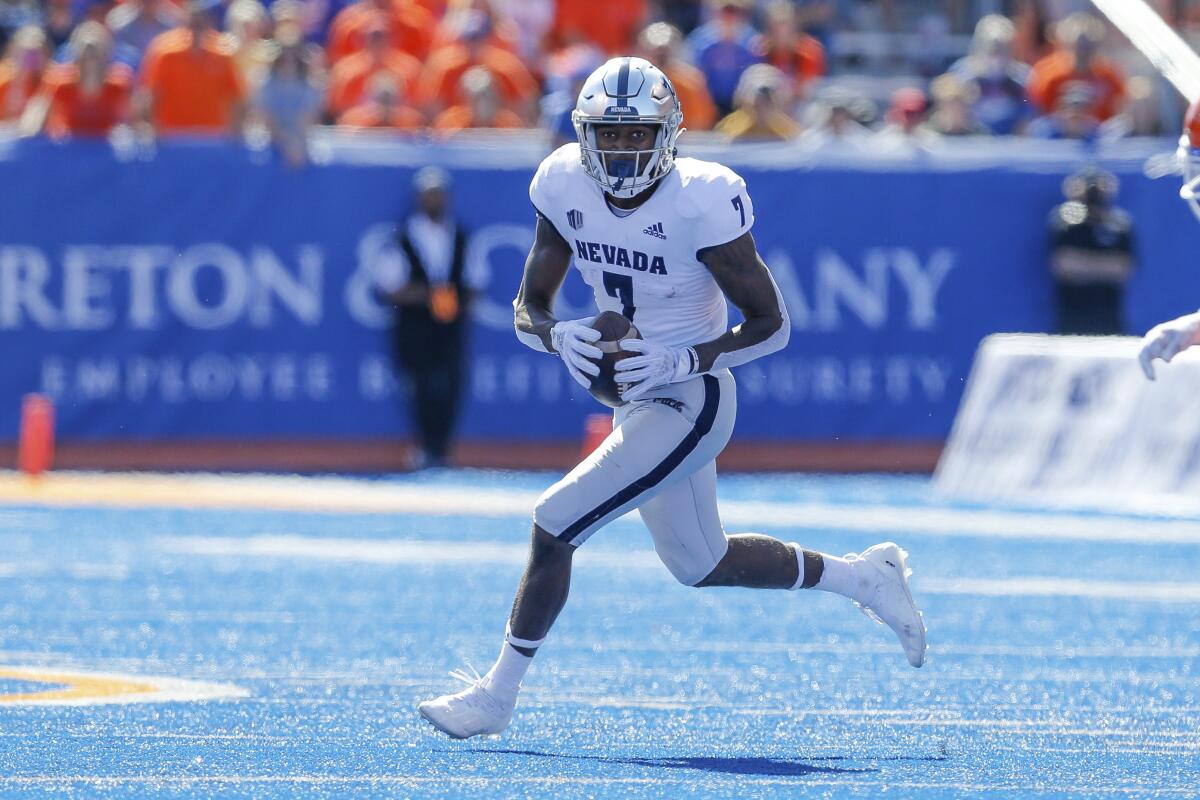
Trodding across pockets of brown, stringy grass, the Hamilton High Yankees went to work on their school’s patchy baseball field.
They were all dressed in uniform. Not the traditional Yankee green. Their work clothes under the July sun were a mandated plain-white T-shirt and black shorts. They’d only receive their Hamilton uniforms after they made it past the final cut day on the 25th.
“Let them earn the Hammy colors,” head coach Norris Milton said. “I try to show pride in the school.”
Over the last couple of years, that pride has been tested for many football programs in the Los Angeles City Section. COVID-19 dealt a near-crippling blow to schools already struggling with overall enrollment and student participation in sports. Teams such as Manual Arts and Crenshaw that once fielded more than 50 players on varsity can now barely muster 25.
“In the next five years, if nothing changes,” said Jefferson coach Jason Grant, “I don’t see City football being in existence.”
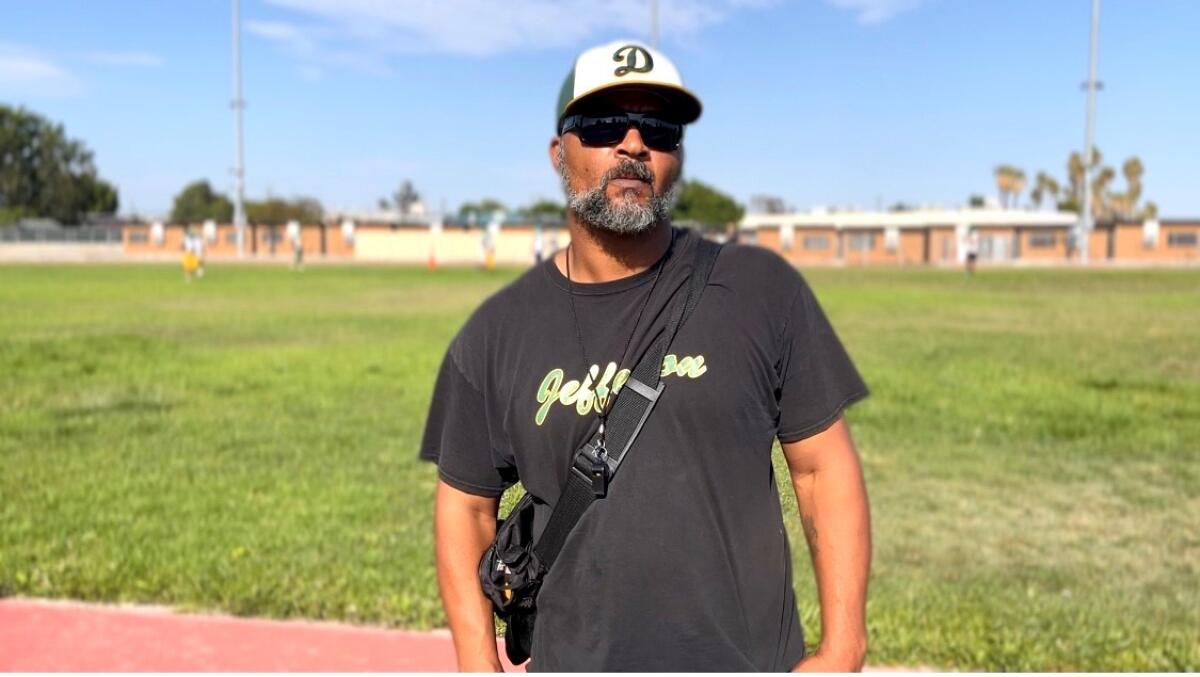
But it‘snot dead yet.
A fresh wave of coaches has entered the Los Angeles Unified School District in recent years — coaches who’ve been molded in the City, who are invested in not just football but the larger community, who are trying to bring pride back to their programs.
“They’ve now come through that cycle of … seven-on-seven, travel teams and all that,” former Dorsey coach Paul Knox said. “They kind of know the ins and outs now. And I think they’ll be able to get kids in there. I think you’ll see a little resurgence in the City in the next three to four years.”
Each has their own philosophy to keeping City football alive.
For Milton, the key is finding diamonds in the rough.
Perhaps sitting in a humid athletics office, with its sticky tiled floor and stray wires poking out of the walls, wasn’t exactly what he pictured when he shipped out to California from Georgia in 2015. He certainly didn’t anticipate being named an athletic director during COVID-19 — just a year after he started as head football coach at Hamilton. Yet he’s fully invested.
“We’re getting more kids interested on campus,” Milton said. “That was my main focus — to really get kids on campus to want to play football.”
After he came to the Yankees in 2019, he met the kids for the first time Aug. 1, giving them two weeks to prepare before their first game. He had 22 players. They went 2-9.
“It was a struggle,” Milton said.
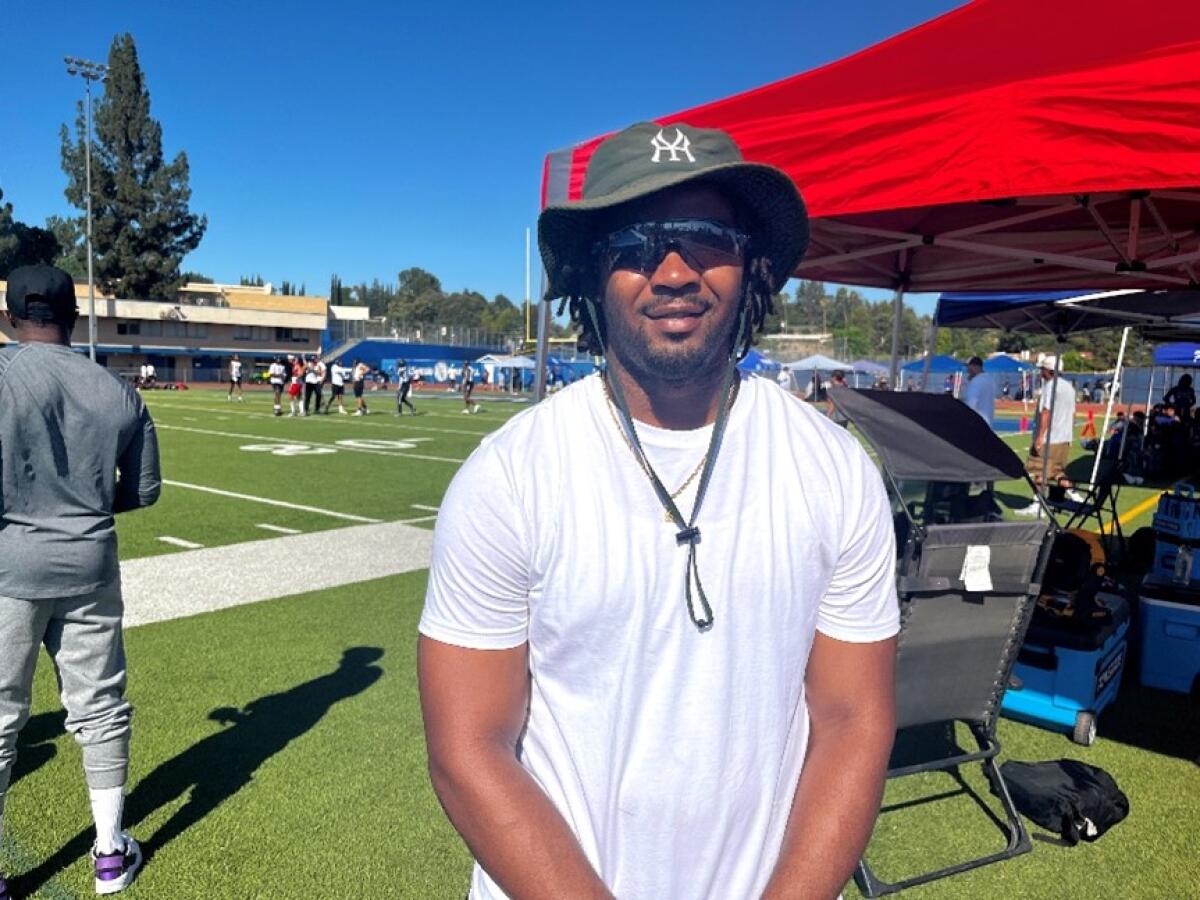
He boosted the number of players to 75 in January 2020 before COVID-19 hit. Finally, after two years, Milton’s managed to get 75 students signed up again, following a surprise 9-4 record last season.
Over half of those students, Milton said, had never played football. Also serving as a PE teacher, he had to walk Hamilton’s halls to find talent. During lunch periods, he’d head out to the field with rising junior Jason Benson and toss a football around, eventually convincing him to come out for the team.
Kids come to Hamilton for the school’s strong arts and theater programs, Milton said, not football. But Hamilton’s enrollment, at about 2,500, is bustling in contrast to other LAUSD schools. Somewhere, there’s an All-City player hidden away in those Yankee classrooms.
“They’re here — it’s just getting them to buy into what it takes to be an athlete,” Milton said. “I ain’t going to say that’s the struggle, but that’s what I really want to try to find at the school.”
For Hawkins coach Ronald Coltress, it’s about building tradition.
In 2016, Hawkins, one of the most dominant programs in the City Section, had to forfeit all 13 wins because of eligibility violations. Coltress, who had no idea about the scandal, was hired as an assistant in 2017. They went 0-11. Then he inherited the reins.
“It was kind of overwhelming, because I didn’t think I was ready to take over the program,” Coltress said.
He’s been reaching into a bare cupboard ever since.
“It’s just like, ‘We’re Hawkins. What are we known for?’” Coltress said. “Well, they’re known for that thing [in 2016] … since then, nothing.”
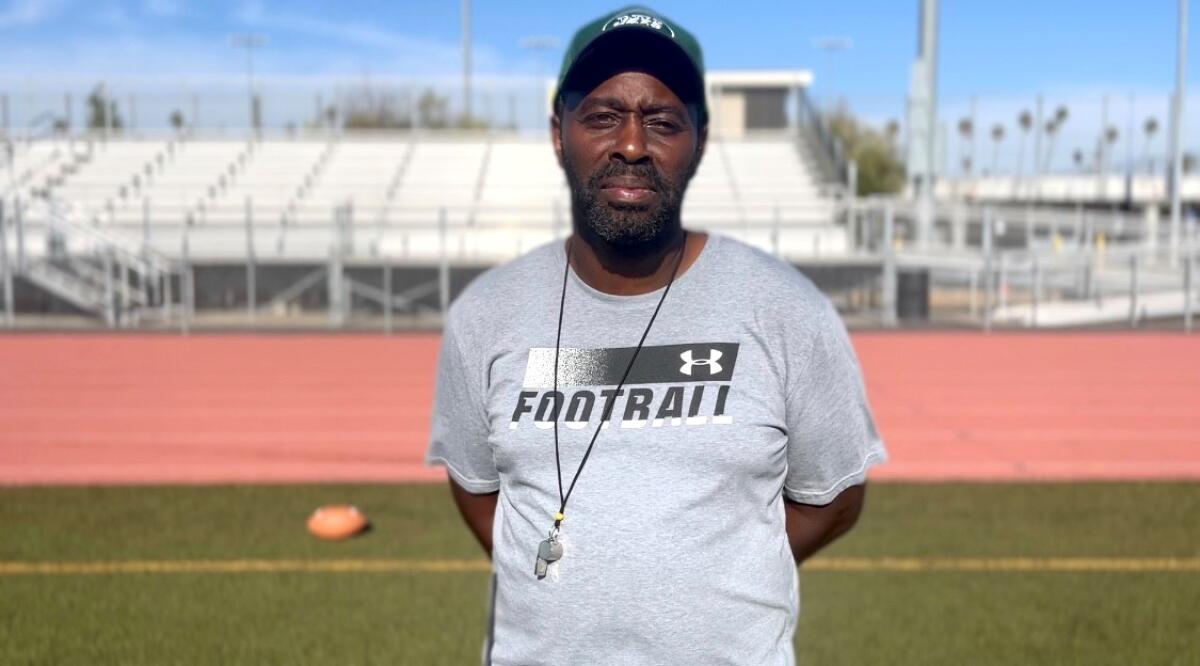
He had the minimum number of 18 players on the roster in 2020 to be eligible to play. Last season’s 7-5 record, however, sowed seeds of promise.
When he first arrived at Hawkins, Coltress never saw alumni return to games. That’s starting to change. Former receiver Steven Romero, who graduated in 2020, is a frequent visitor now. His brothers, Nicholas and Dominick, are now on the team.
“Once they have a program to believe in, a school, tradition, I think that’s how you keep ahold of kids,” Coltress said.
It’s tough to watch inner-city schools struggle with engagement — particularly storied programs like Crenshaw and Dorsey, Coltress said. Yet coaches across the City are committed to rebuilding.
“You can make it at those schools,” Coltress said. “You can make it at Hawkins.”
For Grant, the key is preserving talent at the youth level.
On July 16, he lounged on a bench on the sidelines at a seven-on-seven tournament at El Camino Real High. Jefferson had come to play. Only nine players showed up.
“Typical L.A. City Section,” he muttered.
To even be able to participate, he had to pull an incoming freshman, who’d be starting the year on junior varsity, to play quarterback. As he spoke, his 11-year-old son sat on the other end of the bench. Grant pointed at him.
“He was gonna play quarterback today if I didn’t go play my ninth-grade quarterback,” he said. “For real.”
Last summer, Grant said, he walked into seven-on-seven games with 11 players — and still had opposing programs trying to recruit his players, he said.
“If you’ve got any kind of talent, somebody’s going to be in your ear,” Grant said.
Get our high school sports newsletter
Prep Rally is devoted to the SoCal high school sports experience, bringing you scores, stories and a behind-the-scenes look at what makes prep sports so popular.
You may occasionally receive promotional content from the Los Angeles Times.
When former alumnus Grant was recruited to Jefferson, right before the COVID-19 pandemic, he issued an ultimatum to the administration: The L.A. Demos youth program had to be rebooted. Out of commission for three years because of low turnout, it kicked off again last season. Grant’s coaching staff is now filled top to bottom with coaches involved with the Demos. It’s his blueprint for encouraging the youth in the area to stay.
A couple weeks after that futile El Camino Real tournament, Grant had about two dozen players signed up. Above the roster minimum of 18, and a whole lot more than the 11 at the same time last season.
At Jefferson’s first practice in helmets July 28, Grant knelt on the sideline, ripping up a few blades of grass. This sod, he explained, was the same turf standouts like Romeo Doubs, now a rookie receiver with the Green Bay Packers, had starred on.
His players walk the same halls Doubs did. Walk the same streets around Jefferson. Grant wants them to realize — what’s the difference?
More to Read
Get our high school sports newsletter
Prep Rally is devoted to the SoCal high school sports experience, bringing you scores, stories and a behind-the-scenes look at what makes prep sports so popular.
You may occasionally receive promotional content from the Los Angeles Times.

